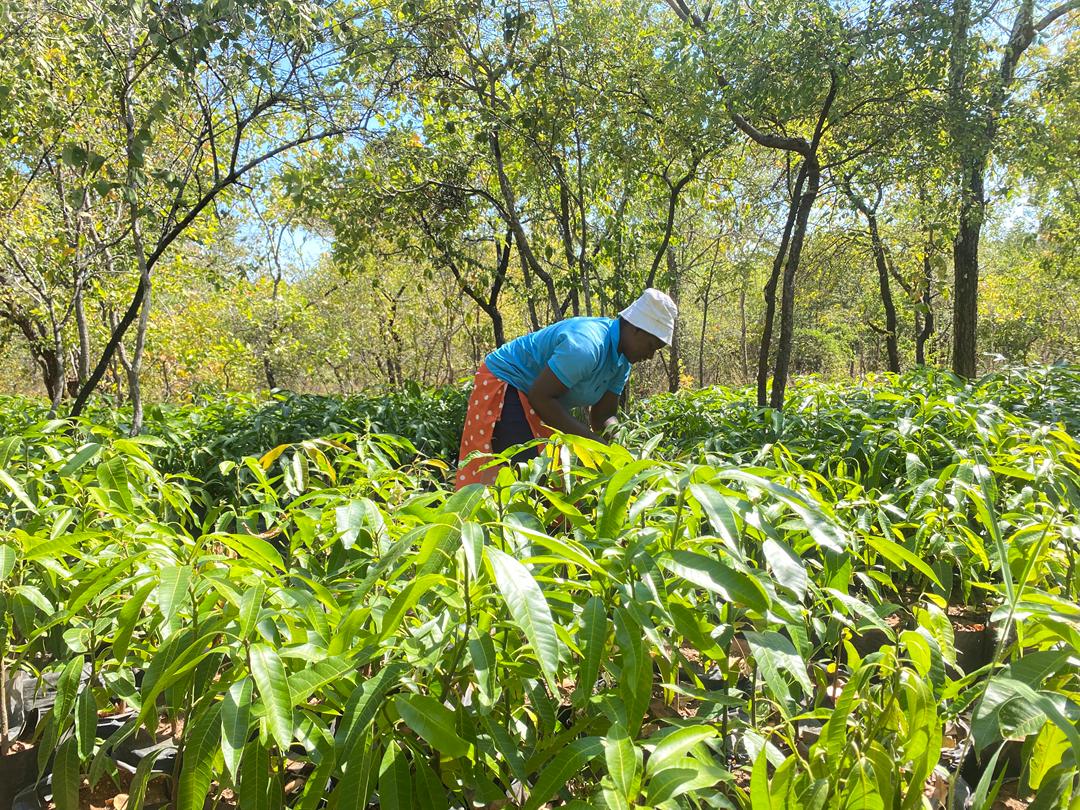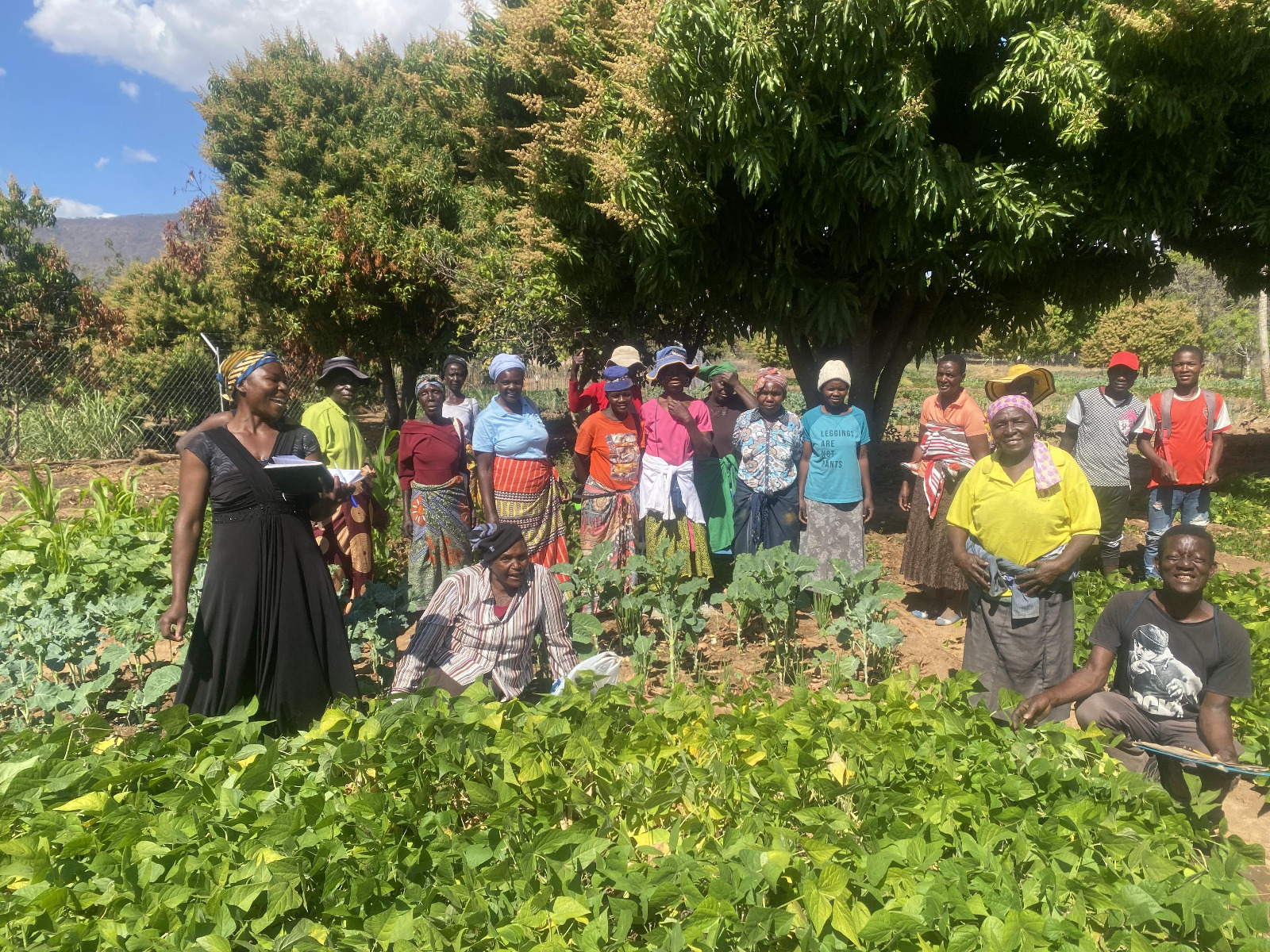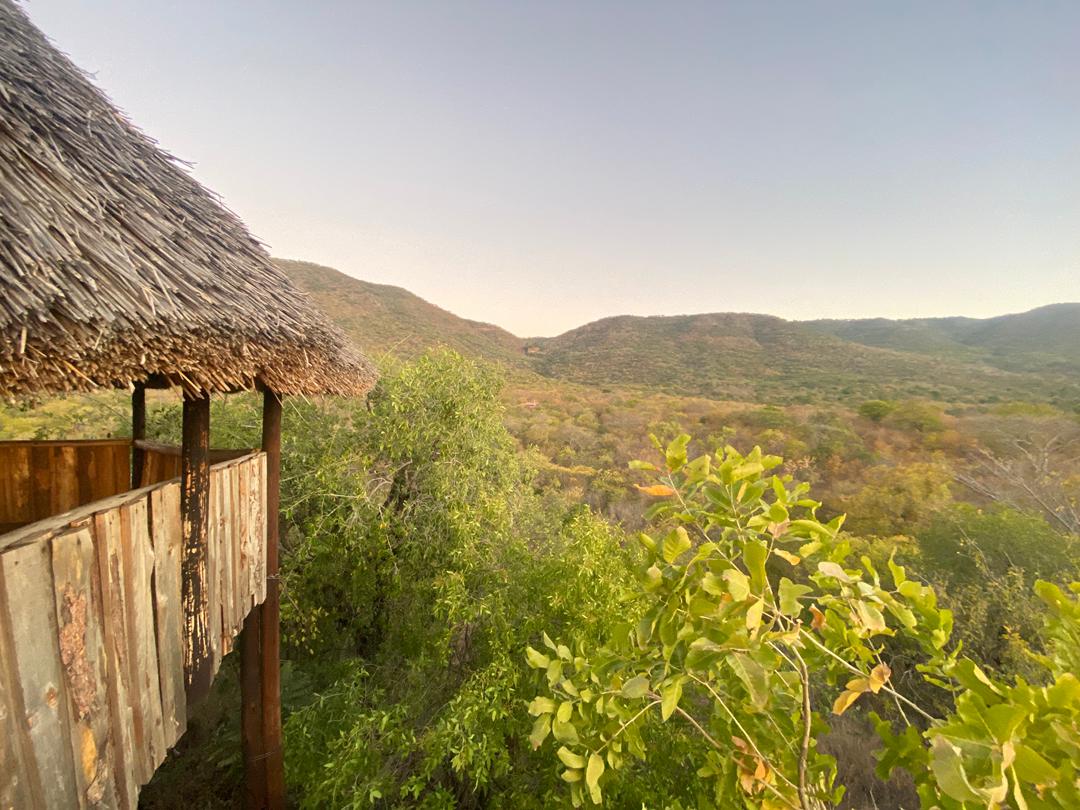Women-Led Food Forest Initiative Paves the Way for Climate Resilience in Zimbabwe
2024 LOCAL ADAPTATION CHAMPIONS AWARD NOMINEE
The rural community of Beatrice, Zimbabwe, is no stranger to the devastating effects of climate change. Recurring droughts have significantly depleted groundwater levels, weakened local food security, and threatened biodiversity. These climatic shifts have left many in the region vulnerable, particularly women, who bear the brunt of these environmental challenges as primary caretakers and smallholder farmers. In response to these challenges, a consortium of three organizations has initiated an ambitious project, the Honde Valley Food Forest Initiative, aimed at tackling both water scarcity and food insecurity through a women-led food forest and empowerment center. This effort seeks to regenerate ecosystems and improve livelihoods in the face of climate change.
A Community-Led Approach to Sustainability
By integrating seven layers of trees, shrubs, and plants that emulate a jungle ecosystem, the initiative has created a food forest which promotes biodiversity, restores soil health, and enhances water retention. Indigenous and climate-resilient crops form the backbone of this effort, offering year-round harvests while reducing dependence on external food sources.

At the heart of this initiative is local leadership and community involvement, with women spearheading the project from inception. The community played a pivotal role in shaping the design and implementation of the food forest, ensuring it was culturally relevant and aligned with local needs. During the planning phase, women from Beatrice provided valuable insights, influencing decisions on forest layout, crop selection, and the programs offered at the empowerment center.
“The project has given us a voice,” says one participant. “We now have a direct role in deciding what happens in our community, especially when it comes to how we manage our land and water resources.” Through training and hands-on workshops, women have gained expertise in sustainable agriculture, water harvesting, and agroforestry techniques. These efforts ensure that local knowledge informs every aspect of the project while fostering community ownership.

Building a Sustainable Future through Empowerment
The food forest, covering 50 hectares, is not just an agricultural endeavor but a beacon of hope for over 3,000 women who will directly benefit from the initiative.
The project also encompasses a women empowerment Camuhoto offering vocational training in agroforestry, entrepreneurship, and leadership development, ensuring that women are not only involved in agriculture but are also key decision-makers in their communities. By fostering leadership skills and financial independence, the center aims to empower women to take control of their futures.
Impact and Scale of the Initiative
The impact of this project extends beyond Beatrice, serving as a scalable model for sustainable development in Zimbabwe and beyond. By restoring groundwater levels and improving food security, the initiative demonstrates how regenerative agriculture can combat the effects of climate change. Deep-rooted plants and trees improve soil structure, reducing runoff and increasing water infiltration, which helps recharge groundwater reserves. This focus on water management has direct implications for agricultural productivity, ensuring that communities have a reliable water source even in the face of prolonged droughts.
The initiative also contributes to biodiversity by creating resilient ecosystems that naturally manage pests and diseases, minimizing the need for chemical inputs that can degrade water quality. "By working with nature, we are not only growing food but also protecting the environment for future generations," says a local participant involved in the project.

Additionally, the economic benefits are tangible. Through eco-tourism and agroforestry, the project generates income, offering women sustainable livelihood opportunities. The sale of seedlings and diverse crop yields creates a financial foundation that supports long-term growth and resilience, making the community less vulnerable to economic shocks.
This project is poised to impact between 500 and 5,000 individuals in the next phase, with plans to expand the model to other parts of Zimbabwe. By focusing on women and youth, the initiative ensures that future generations are equipped with the knowledge and skills needed to maintain and grow the project, ensuring its sustainability for years to come.
By empowering local communities, particularly women, the Honde Valley Food Forest Initiative is transforming lives, regenerating ecosystems, and setting a precedent for sustainable development across Zimbabwe.